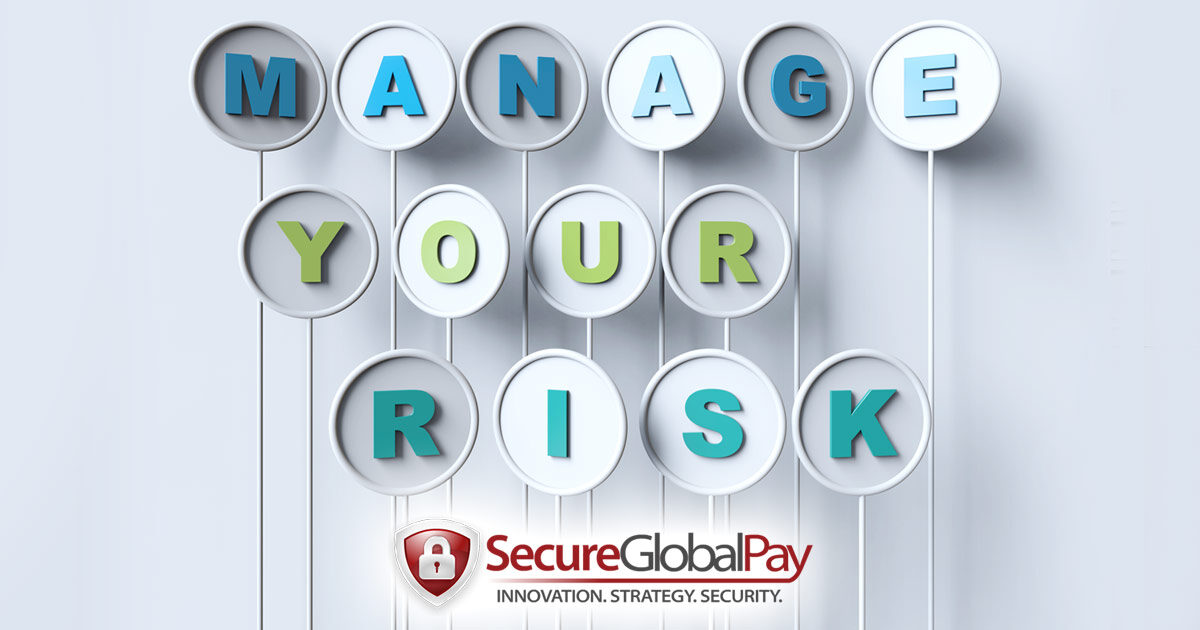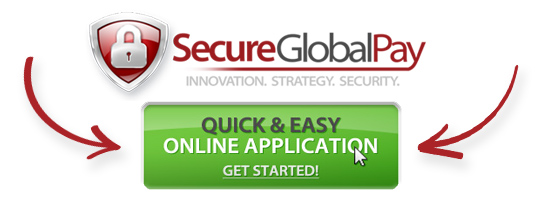
Best Payment Gateway for SaaS – Payments as a Service
In today’s digital age, having an efficient and secure online payment system is essential for every SaaS business. This comprehensive blog post will discuss everything you need to know about the best payment gateway for SaaS, including what a payment gateway for high risk business is, how to integrate one, the difference between a payment gateway and a payment processor, and much more. SecureGlobalPay proudly offers the best payment gateway for SaaS start-ups looking to offer payments as a service for both retail & high risk business types.
The Software as a Service (SaaS) market is projected to grow exponentially over the next seven years – from its current industry size of $251.17 billion in 2022 to an incredible $883.34 billion by 2029. This substantial growth rate of 19.7% Compound Annual Growth Rate (CAGR) indicates that SaaS solutions are becoming increasingly indispensable for businesses worldwide and present immense opportunities ahead for tech enthusiasts everywhere.
What is a Payment Gateway? What is a SaaS Payment Gateway?
A payment gateway is a service that securely processes online transactions, acting as an intermediary between a customer’s bank and the merchant. A SaaS payment gateway, on the other hand, is specifically designed to handle the unique needs of SaaS businesses, such as subscription billing and recurring payments.
A payment gateway is essential to any modern ecommerce business, and SaaS businesses are no exception. An international payment gateway allows customers to purchase software services with credit cards or other payment methods by providing secure transactions worldwide.
In addition, a good SaaS payment gateway should be able to handle a merchant account for recurring billing, which are essential for SaaS businesses. Recurring payments are automated payments that occur on a regular basis, such as monthly subscriptions. This feature is essential for SaaS businesses, as it helps them to maintain a steady income and avoid cashflow issues.
When using a payment gateway, ensuring the data is secured and encrypted is important. A secure payment gateway should have features such as PCI-DSS compliance, fraud protection, and data encryption to ensure customer information is safe.
An Overview of the E-commerce Payment Process
E-commerce encompasses the purchasing, selling, and advertising of products and services over the internet. All financial transactions occur online, with the payer and payee exchanging funds electronically. This is where digital payments come into play.
Ensuring a smooth and user-friendly online shopping experience for customers is essential. Numerous financial institutions or third-party entities are involved in processing the payment and validating the transaction data, which allows the purchase to be completed within seconds.
Here are some common steps involved in the online payment process:
- Customers input their card number, CVV, and expiration date on payment pages or websites at checkout.
- Upon clicking the submit button, the payment gateway transmits the encrypted payment information to the payment processor.
- The data is then sent to the card network (e.g., Visa or MasterCard) and ultimately to the customer’s issuing bank for authorization.
- The payment gateway receives a response through the processor confirming that the transaction has been authorized and then forwards it to your website.
- The checkout process is completed. Within a few days, the funds are transferred from the issuing bank to your merchant bank account (usually held by the acquiring bank).

Integrating Payments for SaaS Businesses
Subscriptions provide customers access to the latest software products, saving them time and money on development and hardware. Simultaneously, SaaS companies can monetize their products and generate funds for ongoing development and innovation.
Automating the recurring billing process is crucial for the success of SaaS businesses and startups. As a business grows, manual processing becomes impractical. As a result, SaaS billing systems are typically managed through subscription billing or recurring payments. To ensure customers can effortlessly access paid subscriptions to your SaaS product, you need to address three key stages:
- Payment Gateway: Customers interact with a payment gateway when purchasing a subscription plan for your SaaS product. They choose the payment method and subscription plan and input their payment information.
- Merchant Account: The funds are transferred to the merchant account once the payment information is processed. Payment gateway providers often include a merchant account as part of their service.
- Subscription Management: Finally, you need to set up subscription management—store subscription details to keep track of recurring payments (monthly, yearly, etc.). Subscription management also handles upgrades, downgrades, cancellations, and more.
For optimal efficiency and a positive user experience, it’s best to consolidate all these tools into a single billing system. However, you can also use separate tools for the payment gateway, merchant account, and subscription management.

How to Integrate a Saas Payment Gateway
There are three primary ways to integrate a payment gateway: non-hosted payment integration, self-hosted payment integration, and hosted payment gateway. Please review our integration portal for your preferred method of integration.
Non-hosted payment integration
With non-hosted payment integration, the customer enters their payment details directly on the merchant’s website, and the payment gateway API is used to process the transaction. This method provides a seamless customer experience but requires the merchant to maintain high security.
Self-hosted payment integration
In self–hosted payment integration, the customer is redirected to a secure payment page hosted by the merchant. The payment details are entered and processed on this page, which requires the merchant to maintain a secure server and manage the payment page’s design.
Hosted payment gateway
A hosted payment gateway redirects the customer to a secure payment page hosted by the payment gateway provider. This method offloads the payment gateway provider’s responsibility of maintaining security and PCI compliance.
What is a Payment Processor?
A payment processor is a company that handles the actual processing of the transaction, connecting the merchant’s payment gateway to the customer’s bank or credit card provider.
Payment Gateway vs. Payment Processor
The primary difference between a merchant account vs. payment gateway vs. a payment processor is their role in the online transaction process. The payment gateway is an intermediary between the customer and the merchant, securely transmitting payment information. In contrast, the payment processor is responsible for processing the transaction and connecting the payment gateway to the customer’s bank or credit card provider.

How to Choose the Best Saas Payment Gateway Provider
Selecting the right payment gateway provider is essential for the success of your online business. With numerous options available, it can be challenging to determine which provider best suits your needs.
Pricing
Payment gateway providers charge various fees, including setup, transaction, and monthly fees. To make an informed decision, compare the fee structures of different providers and consider how they align with your business’s budget and revenue projections.
Transaction Limits
Some payment gateway providers impose transaction limits, which can impact your business’s scalability. Ensure the provider you choose can accommodate your anticipated transaction volume without incurring excessive fees or requiring frequent plan upgrades.
Payment Methods
Your payment gateway should support the payment methods your customers prefer. Consider the types of credit and debit cards accepted and support for digital wallets and other payment options. Catering to your customer’s preferred payment methods can increase conversion rates and customer satisfaction.
Alternative Payment Methods
In addition to traditional payment methods, consider whether the payment gateway provider supports alternative payment options, such as cryptocurrencies, local payment methods, or buy now, pay later options. Offering diverse payment methods can help you reach a broader customer base.
SaaS-Specific Payment Methods
If you operate a SaaS business, you’ll need a payment gateway provider that supports recurring payments and subscription management. Look for a provider with robust subscription management tools and the flexibility to accommodate different billing cycles and pricing plans.
Subscription Management Tools
Integrated subscription management tools are essential for businesses offering subscriptions or recurring billing (monthly fee). These tools should allow you to manage customer subscriptions, handle upgrades and downgrades, and process cancellations seamlessly.
Security
Security is paramount when processing online payments. Choose a payment gateway provider that complies with industry standards, such as the Payment Card Industry Data Security Standard (PCI DSS). Additionally, consider providers offering fraud detection and prevention tools to further protect your business and customers.
Compatibility
Ensure the payment gateway provider you choose is compatible with your e-commerce platform or website infrastructure. Some providers offer pre-built integrations or plugins for popular platforms, making the integration process smoother and more efficient.

Comparison of Popular Payment Gateway Providers – Best SaaS Payment Gateway
Choosing the right payment gateway provider for your SaaS business is essential to ensure seamless and secure transactions. We will compare some of the most popular payment gateway providers to help you determine the best fit for your SaaS company.
PayPal
PayPal is a well-known payment gateway that supports subscription payments and provides various tools for managing recurring billing. However, it operates on a single merchant account model, which may not be suitable for all SaaS businesses.
Amazon Pay
Amazon Pay is a payment gateway that delivers a seamless checkout experience for Amazon customers. It supports subscription payments and offers an array of tools for managing recurring billing, making it a viable option for SaaS businesses.
Authorize.net (a Visa solution)
Authorize.net is a versatile payment gateway that supports a wide range of payment methods and provides advanced features such as fraud protection, tokenization, and subscription management tools. Its comprehensive offerings make it a strong contender for SaaS businesses.
Stripe
Stripe is a popular payment gateway for SaaS businesses, known for its powerful APIs, easy integration, and extensive suite of subscription management tools. However, like PayPal, it operates on a single merchant account model, which may not be ideal for all SaaS companies.
2Checkout (Verifone)
2Checkout is a payment gateway that supports over 45 payment methods and offers advanced features such as fraud protection, subscription billing, and recurring payment management. Its extensive payment method support and robust feature set make it a suitable option for SaaS businesses.
WePay
WePay is a payment gateway specializing in platform integration, providing a wide range of payment methods and a comprehensive suite of tools for subscription management. Its focus on seamless integration and subscription management makes it an attractive choice for SaaS businesses.

How Can SecureGlobalPay Help Your SaaS?
SecureGlobalPay is a secure payment gateway that offers omnichannel versatility and a comprehensive suite of features to support businesses of all sizes. We’ll highlight the key aspects of SecureGlobalPay’s payment gateway solution.
Secure payment gateway with omniChannel versatility
SecureGlobalPay provides a flexible and secure payment gateway that seamlessly integrates with multiple sales channels, including online stores, mobile apps, and brick-and-mortar businesses, ensuring a consistent customer payment experience.
Multi-channel platform services
The multi-channel platform services offered by SecureGlobalPay allow businesses to accept payments through various channels, such as e-commerce websites, mobile apps, and in-person transactions, simplifying payment management and streamlining operations.
Card types accepted
SecureGlobalPay’s payment gateway supports various credit and debit card types, including Visa, Mastercard, American Express, and Discover, allowing businesses to cater to a diverse customer base.
Mobile payment processing
With SecureGlobalPay, businesses can accept mobile payments, providing a convenient and secure payment option for customers who prefer to pay using their smartphones or other mobile devices.
Electronic invoicing
SecureGlobalPay offers electronic invoicing, enabling businesses to send digital invoices to customers and receive payments online, reducing paperwork and simplifying the billing process.
Data protection and security
SecureGlobalPay also provides advanced data protection measures, such as tokenization and end-to-end encryption, to ensure customer data is always secure. With SecureGlobalPay’s comprehensive payment solution, businesses can rest assured that their payments are processed securely and efficiently.
QuickBooks® integration
SecureGlobalPay integrates with QuickBooks SynchPay, allowing businesses to process payments and reconcile transactions quickly and easily. This eliminates the need for manual data entry and makes bookkeeping more efficient.
Recurring billing
SecureGlobalPay’s recurring billing feature allows businesses to easily set up and manage subscription payment plans, making it a great option for SaaS companies. SecureGlobalPay provides comprehensive tools to manage and automate the billing process for businesses offering subscription-based or recurring billing services.
Swipe technology
SecureGlobalPay also provides swipe technology, allowing businesses to accept in-person customer payments using credit or debit cards quickly. SecureGlobalPay supports swipe technology, allowing businesses to process payments using card readers for in-person transactions, improving transaction speed and convenience.
Payment gateway comparison
When comparing payment gateways, consider SecureGlobalPay’s extensive features, such as omnichannel versatility, multi-channel platform services, and a wide range of supported card types.
SecureGlobalPay payment gateway
SecureGlobalPay’s payment gateway offers comprehensive features to support businesses across various industries, ensuring customers a smooth and secure payment experience.
SandBox/developer account
SecureGlobalPay offers businesses a sandbox/developer account to test and develop their payment integration before launching, ensuring customers a seamless and error-free payment experience when the system goes live.

Online Saas Payment Solutions: Final Thoughts
Choosing the best payment gateway for your SaaS business is crucial for providing a seamless and secure customer experience while effectively managing your subscription billing and recurring payments. Carefully evaluate each provider’s features, pricing, and compatibility with your platform to select the ideal payment gateway for your business.
At SecureGlobalPay, we provide a comprehensive payment gateway solution that offers omnichannel versatility and modern features to ensure a secure and convenient payment experience for your customers. With our dedicated support team and robust security measures, SecureGlobalPay is the ideal choice for your SaaS business. Contact us today to learn more about how we can help you succeed!

Best Payment Gateway for SaaS FAQs
What is a payment gateway for SaaS?
A SaaS payment gateway is an online payment processing solution that enables merchants to accept credit card payments directly from their websites. It authorizes online payments and establishes contact between a customer, a merchant, and the other parties involved in transaction processing.
What is the best payment gateway for SaaS?
The best payment gateway for SaaS depends on your specific business needs, including the type of payment methods you require, your target markets, and your platform’s compatibility. Some popular choices for SaaS businesses include Stripe, Authorize.net, and 2Checkout.
Are aggregators considered SaaS payment gateways?
Aggregators are payment gateways allowing multiple merchants to share a single account. While SaaS businesses can use them, they may not offer the same customization and flexibility as dedicated SaaS payment gateways.
How can I integrate a payment gateway for SaaS?
Integrating a payment gateway for SaaS typically involves connecting the gateway’s API to your SaaS platform, following the provider’s documentation and guidelines. Some payment gateways offer pre-built integrations or plugins for popular SaaS platforms, making the process even easier.
Is SecureGlobalPay considered a SaaS payment gateway?
Yes, SecureGlobalPay is considered a SaaS payment gateway as it offers multiple merchant accounts, transaction routing, load balancing, and other features tailored to the needs of SaaS businesses.
What is a SaaS payment gateway?
A SaaS payment gateway is specifically designed to handle the unique needs of SaaS businesses, such as subscription billing, recurring payments, and subscription management tools.
Who has the best SaaS payment gateway?
The best SaaS payment gateway varies depending on your specific business requirements. Some popular choices include Stripe, Authorize.net, and 2Checkout.
Is PayPal considered a SaaS payment gateway?
While PayPal does support subscription payments and offers some tools for managing recurring billing, it operates on a single merchant account model, which might not be suitable for all SaaS businesses.
Is Stripe a SaaS payment gateway?
Stripe is a popular payment gateway for SaaS businesses due to its powerful APIs, easy integration, and comprehensive suite of subscription management tools. However, it also operates on a single merchant account model, which may not be suitable for all SaaS businesses.



